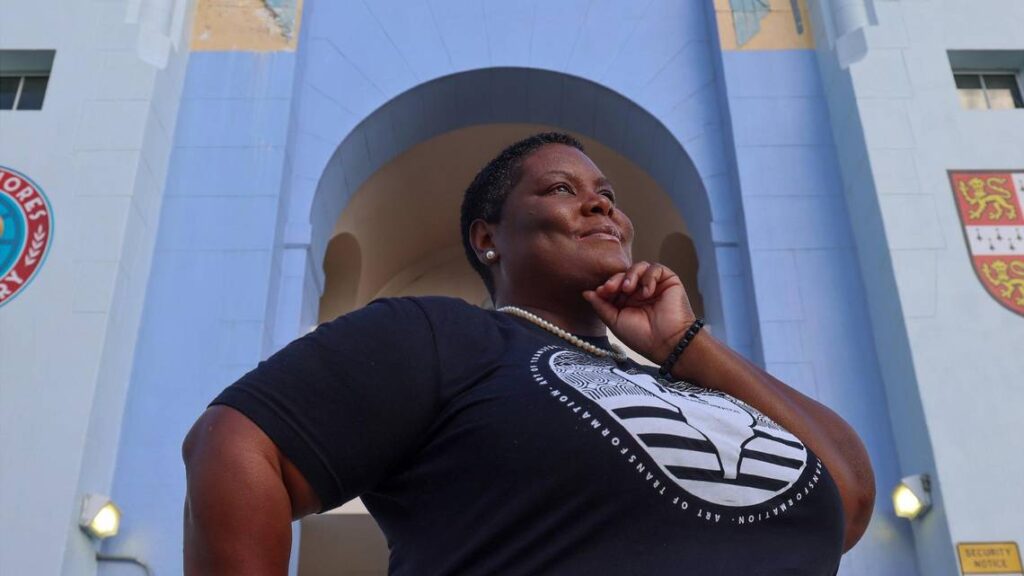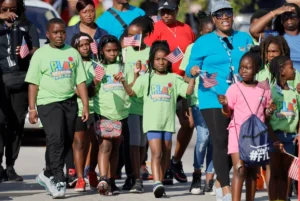On a breezy February afternoon, a cacophony of sounds can be heard from the Miami Shores Elementary School with soaring sights to match: Students in the Art of Transformation after school program are busy doing acrobatics from aerial silks, learning dance steps in the bandroom, working on art projects or building sail cars, which are powered by wind, in their STEM class.
This is the vision Nakia Bowling has for young Black children in the communities she services. “I wanted activities you typically don’t find in communities of color,” she said.
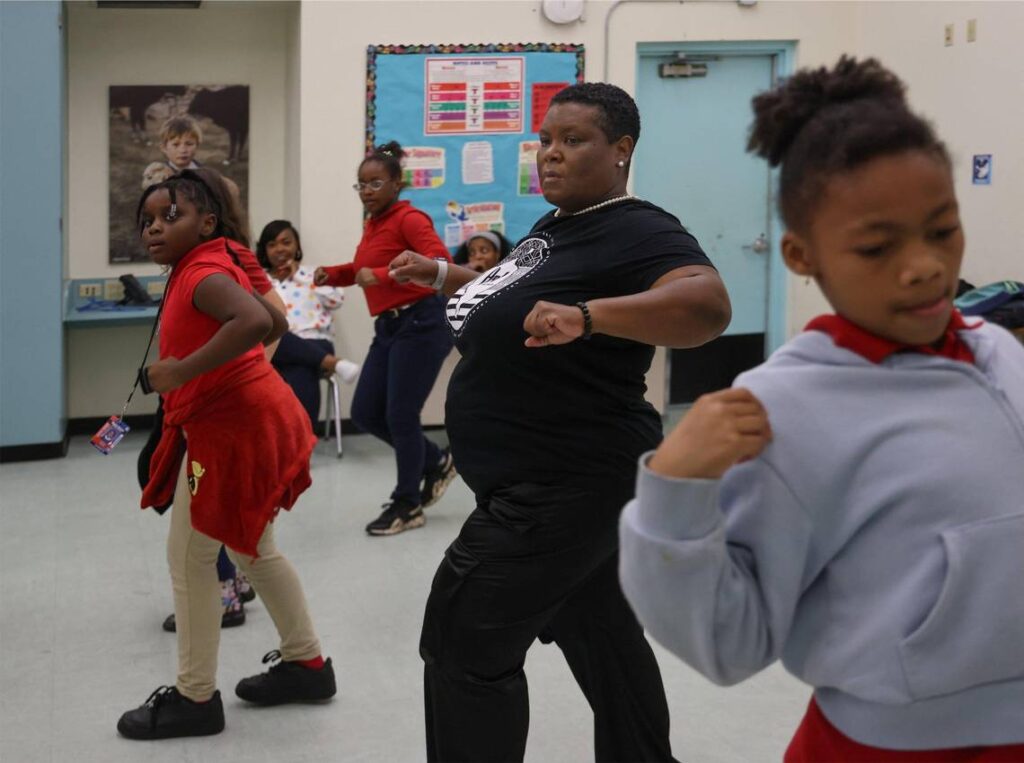
His flashcards might help Bowling, the vice president of government affairs, development and family services for Opa-locka nonprofit Ten North Group, oversees their after school program, which shares the name of the nonprofit’s annual art activation during Miami Art Week. In the afternoons, Bowling, 49, can be found at one of the three after school program sites: Miami Shores Elementary, Norwood Elementary and Jeremiah Academy in Miami Gardens. Black students comprise nearly 88% of the attendees which serves students in grades fourth through eighth, she said.
The idea to incorporate a more artistic after school program came to Bowling during the pandemic, when she noticed students in the nonprofit’s after school coding program were not engaged after spending long days in front of the computer. “We really wanted kids to just develop using their hands and their creativity and movement, and so that’s what spawned this,” she said, adding they polled students, parents and funders about what they’d like to see in the program. After receiving a $4.5 million grant spread across five years (or $900,000 per year) from The Children’s Trust, the Art of Transformation after school program launched in August serving more than 250 students. Part of Bowling’s mission is to help students know their history and see themselves. The program has “required reading” from authors such as Toni Morrison and Harriet Beecher Stowe for students or their parents. Bowling’s efforts come as criticism for diversity, equity and inclusion increases and the state has pushed legislation that limits how Black history is taught in Florida schools. “We know there has been this systemic effort to kind of erase Black culture, Black history, and we are essentially steeped in that,” she said, “and we want to be very intentional and go against the grain by having required reading books.”
Bowling wants the students in the after school program to have pride in themselves and see themselves reflected in the leadership. That also means hiring staff that look like them. “I’m very intentional and very vocal about wanting to hire Black artists. I want artists of color to teach children of color, I want to hire Black men to teach Black students and non-Black students.”
Bowling pointed to STEM teacher, Thechelet Charles, and dance instructor, Taurean Devoe as examples for the students, noting it’s important that Black children see Black men in such roles as they are often bombarded with negative images. “I think it’s equally important when it’s non-children of color in the classroom so that they’re presented with a first positive of a Black male, so they carry that.” Unafraid of the criticism that comes with hiring a predominantly Black staff, Bowling said, “They’re qualified. I hire the best, and I believe that I can find the best in my community.” As she put it, she “wants all the smoke.”
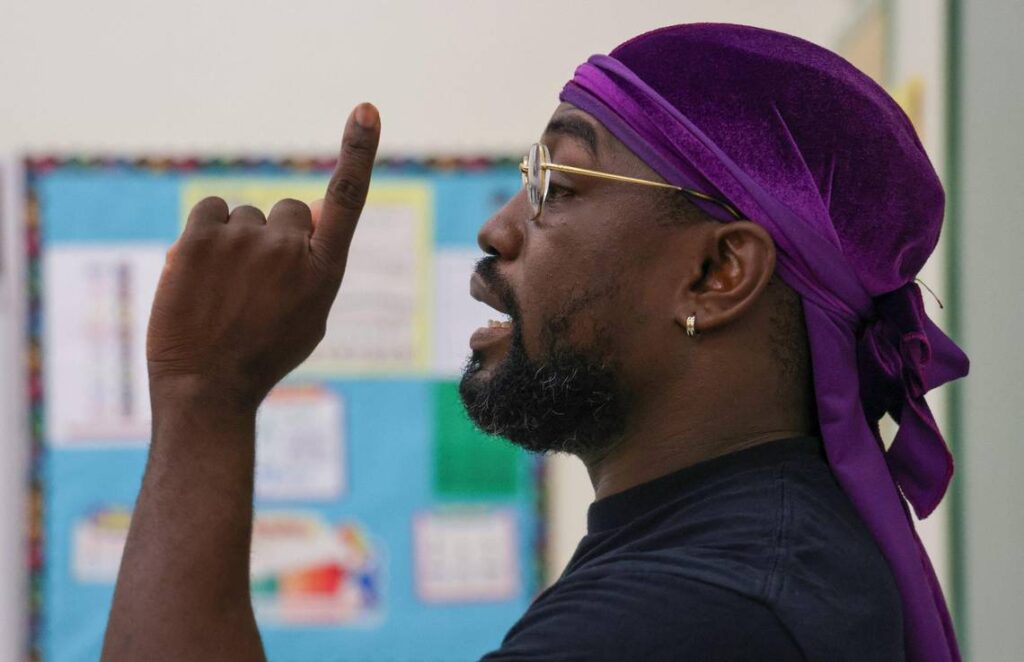
‘You are worthy’
Growing up immersed in the culture of Liberty City, Bowling was raised to have a profound sense of community and appreciation for her Blackness. She described her childhood in a tight-knit community full of Black business owners and doctors, and where your teachers were often your neighbors. “I grew up seeing greatness,” she said. “That was my whole block I grew up on – all Black stores, owners.” After starting high school at New World School of the Arts, Bowling transferred to Miami Northwestern, where she said she learned to find her voice. It was her transformative experience as a student at Miami Northwestern that shaped her view of herself, recalling her teacher, Ms. Wallace, sitting her down and educating her on the McDuffie Riots and its importance. “It broke that shell. I met people who took me out of my comfort zone and forced me to explore beyond my own bubble,” she said.
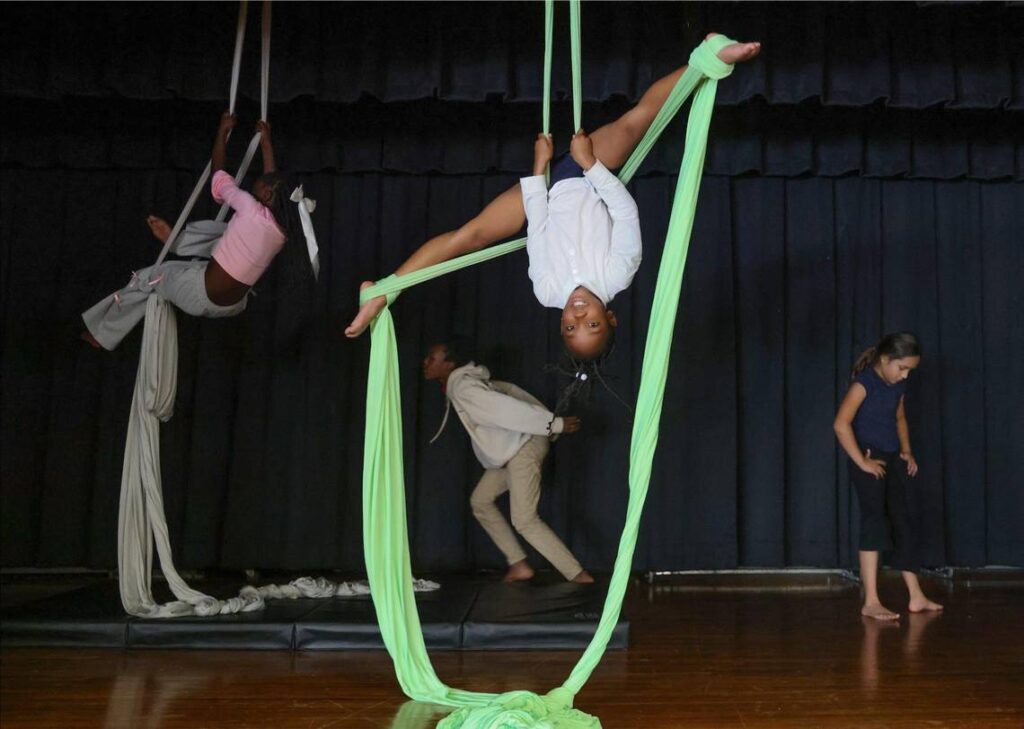
“They were big on preserving our history, not just preserving it but sharing and making sure what we knew it was important in a school like Miami Northwestern, where only Black kids could go,” she said of the school that was established in 1955 as a vocational school for Black students. Once she graduated high school, Bowling went on to South Carolina State University where she received her journalism degree. From there, she worked at the Miami Times, under late publisher Rachel Reeves. “She was tough at the time because she’s a Black woman publisher,” Bowling said. “She said you can find your space to make an impact,” Bowling continued, ”That’s really what I loved because immediately the Black press was making an impact in the Black community.” Bowling would later switch to public relations working for various nonprofits, including M.O.V.E.R.S., Inc, Camillus House and The Carrie Meek Foundation before working with Ten North Group. Bowling said doing her nonprofit work gives her the same rush she got when writing about Black communities in Miami. “I get the same euphoria when a child who’s never experienced silk aerial gets up on the rope and they’re completely blown away,” she said. Ten North Group’s education manager LaTasha Bratton says Bowling is a force. “She pushes the limits of everything,” she said. “You’ll see this greatness that comes out of that.” The two reminisced about their time at Miami Northwestern and what they learned from classes there. “Black Miami was a whole thing they taught at Northwestern, and you don’t, at the time, appreciate it. You’re a teenager,” Bowling said. “Now, living in this climate and seeing children being stripped of that, you realize how precious that is and how valuable that lesson is and how it shaped you.”
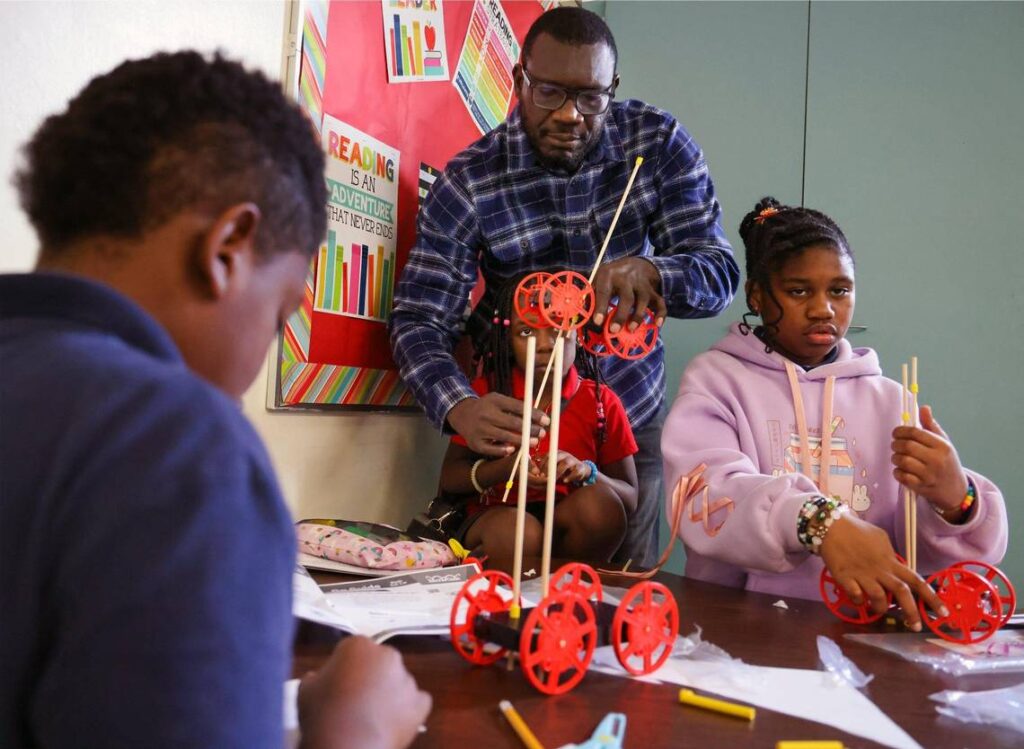
Bowling’s experience during her high school years is what she seeks to create for the students in the after school program, helping them know their worth and understand their history. One way they’ve done that is by collecting the students’ artwork and curating it for a professional exhibit in Opa-locka and holding an art show. Bowling said the children, their teachers and visitors were moved to tears. “They need to see that. You can’t replicate that feeling. They see themselves, and they see someone being proud of them, saying, ‘Hey, you matter to me. You are worthy.’”
Read more at: https://www.miamiherald.com/news/local/education/article299743884.html#storylink=cpy

